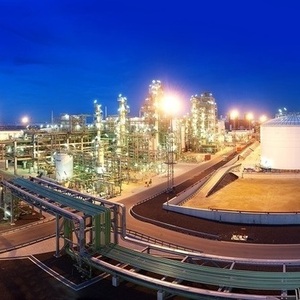Neste evaluates investing in US renewable diesel production

Photo: Neste Corp.
February 9, 2017
BY Ron Kotrba
Renewable diesel producer Neste Corp. is evaluating investment in new production capacity in Singapore and the U.S., the company revealed in its financial statements release.
“Neste will continue to implement its global renewables growth strategy,” stated Matti Lievonen, Neste president and CEO. “The demand for renewable products is expected to continue growing globally.”
The company says its renewables capacity increase program will include debottlenecking of existing production capacity from 2.6 million tons (approximately 810 million gallons) to 3 million tons (936 million gallons) by 2020, and building new capacity.
Advertisement
“We are currently evaluating the feasibility of options to invest in new production capacity,” Lievonen said. “The options under review include locations in the U.S. and Singapore.”
The announcement comes on the heels of Neste’s most profitable year yet with renewables, and speculation whether the new U.S. administration and Congress will extend the lapsed $1 per gallon blenders tax credit as-is or reform the incentive to only benefit U.S. product. The U.S. tax credit has expired five times since 2010 and has been extended four times.
Advertisement
“For the first time [our renewable products division] had the largest full-year profit contribution, which reflects the continuing strategic transformation of the company,” Lievonen said, adding that the renewables segment recorded a full-year comparable operating profit of €469 million. “Our sales volumes reached 2.22 million tons (approximately 686 million gallons), only 2 percent below the previous year, despite of the scheduled major turnaround implemented at the Rotterdam refinery in the second quarter. A slightly higher share of the sales volume was allocated to the North American market compared to 2015. In the U.S. market, the EPA finalized increased volume mandates for biomass-based diesel for 2017 and 2018 in November 2016. Feedstock optimization continued, and the share of waste and residue feedstocks was successfully expanded to 78 percent of total renewable inputs in 2016. Acquisition of a new feedstock pretreatment facility in the Netherlands will further enhance our capability to process lower quality wastes and residues.”
Lievonen referenced particularly attractive markets around the world, including Norway and California. “Norway has set a biofuel target in traffic growing from 7.5 percent in 2017 to 20 percent in 2020,” Lievonen said. “California continues to be an important market for Neste. Sales volumes of the renewable diesel delivered as 100 percent to end-users are expected to continue growing from 15 percent in 2016 to 25 percent of the total renewable sales volumes in 2017. The vegetable oil market is expected to remain volatile, and we aim to expand the use of lower-quality waste and residue feedstock further. The completed acquisition of the new feedstock pretreatment and storage facility in the Netherlands will support this goal.”
Click here for more information.
Related Stories
Marathon Petroleum Corp. on Aug. 5 released second quarter financial results, reporting improved EBITDA for its renewable diesel segment. The company primarily attributed the improvement to increased utilization and higher margins.
Chevron Corp. on Aug. 1 confirmed the company started production at the Geismar renewable diesel plant in Louisiana during the second quarter after completing work to expand plant capacity from 7,000 to 22,000 barrels per day.
The public comment period on the U.S. EPA’s proposed rule to set 2026 and 2027 RFS RVOs and revise RFS regulations closed Aug. 8. Biofuel groups have largely expressed support for the proposal but also outlined several ways to improve the rulemaking.
In celebration of World Biodiesel Day, MOL Group on Aug. 8 announced SAF was successfully produced for the first time at INA’s Rijeka Refinery during a pilot project to process biocomponent. Renewable diesel was also produced.
Iowa farmers have a new market opportunity for their 2025 soybean crop. Landus is expanding its Clean Fuel Regulation initiative, made possible by recent policy changes expected to increase Canada's demand for liquid biofuel.
Upcoming Events










